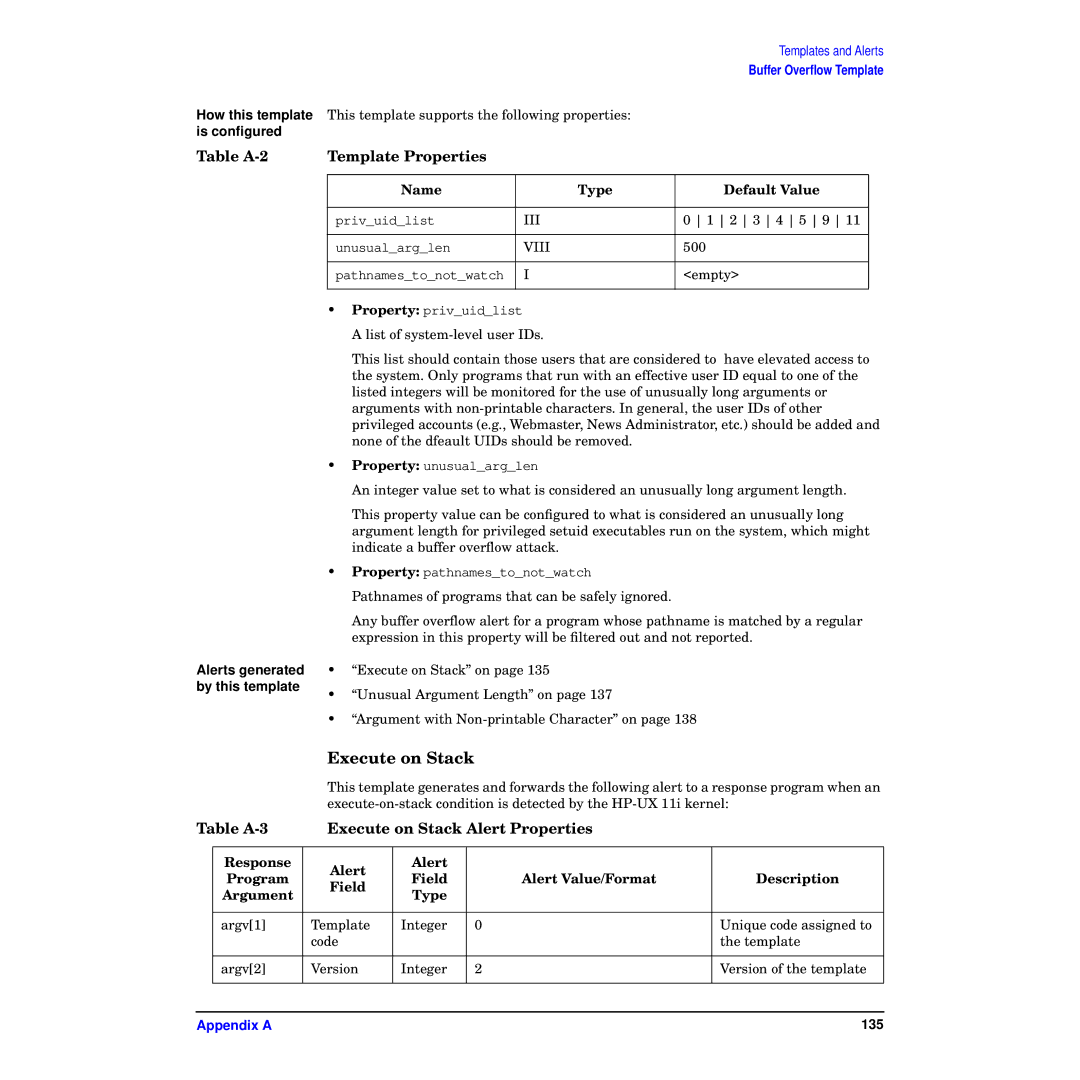
Templates and Alerts
Buffer Overflow Template
How this template This template supports the following properties: is configured
Table | Template Properties |
|
|
|
|
|
|
|
|
| Name |
| Type | Default Value |
|
|
|
|
|
| priv_uid_list | III |
| 0 1 2 3 4 5 9 11 |
|
|
|
|
|
| unusual_arg_len | VIII |
| 500 |
|
|
|
|
|
| pathnames_to_not_watch | I |
| <empty> |
|
|
|
|
|
•Property: priv_uid_list
A list of
This list should contain those users that are considered to have elevated access to the system. Only programs that run with an effective user ID equal to one of the listed integers will be monitored for the use of unusually long arguments or arguments with
•Property: unusual_arg_len
An integer value set to what is considered an unusually long argument length.
This property value can be configured to what is considered an unusually long argument length for privileged setuid executables run on the system, which might indicate a buffer overflow attack.
•Property: pathnames_to_not_watch
Pathnames of programs that can be safely ignored.
Any buffer overflow alert for a program whose pathname is matched by a regular expression in this property will be filtered out and not reported.
Alerts generated by this template
•“Execute on Stack” on page 135
•“Unusual Argument Length” on page 137
•“Argument with
Execute on Stack
This template generates and forwards the following alert to a response program when an
Table | Execute on Stack Alert Properties |
| |||
|
|
|
|
|
|
| Response | Alert | Alert |
|
|
| Program | Field | Alert Value/Format | Description | |
| Field | ||||
| Argument | Type |
|
| |
|
|
|
| ||
|
|
|
|
|
|
| argv[1] | Template | Integer | 0 | Unique code assigned to |
|
| code |
|
| the template |
|
|
|
|
|
|
| argv[2] | Version | Integer | 2 | Version of the template |
|
|
|
|
|
|
Appendix A | 135 |
